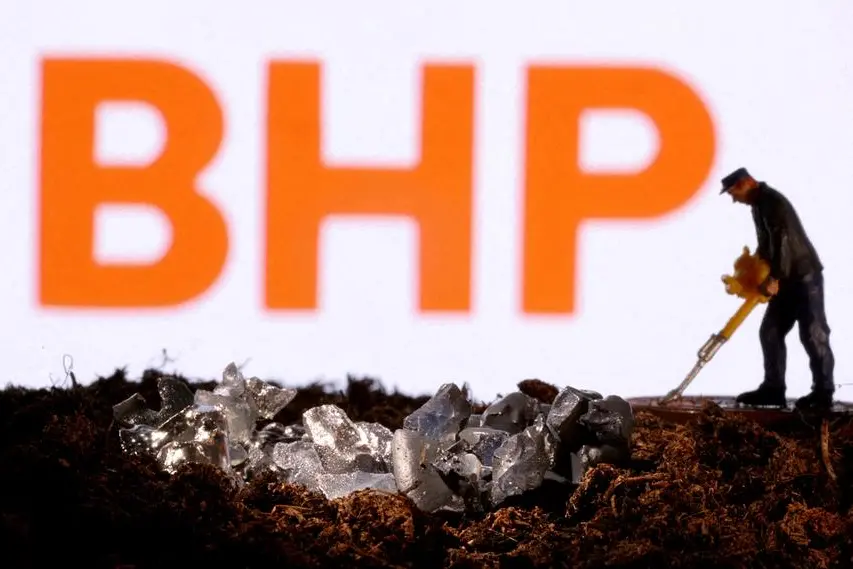PHOTO
LONDON - BHP Group's $49 billion bid for Anglo American may have failed but the move highlights how companies have been leading a charge to snap up UK assets as they seek growth in a relatively undervalued market, bankers and analysts said.
"Bidder appetite has definitely accelerated especially among the global corporates," said James Robinson, Head of UK & Ireland M&A, at JPMorgan. "They've been running the slide rule over UK plc for a long time but we are really seeing a pivot to action. Do we continue to see more? The answer is yes."
Besides BHP's bid for Anglo, International Paper 7.4 billion pound bid for DS Smith, Quanex's 788 million pound deal to acquire engineering firm Tyman and Barratt Developments 2.6 billion pound bid for Redrow highlights are among the companies that have seized on UK prospects.
BHP's deal faltered because it couldn't get Anglo to agree on the structure of its offer, a complex deal that involved Anglo agreeing to spinning off two South African units. But driving the offer upswing is the lower valuation of UK companies, giving bidders access to growth in global markets but at a fraction of the price, bankers said.
As at the end of April there were 38 companies under offer in the UK, the highest number since June 2022, according to Peel Hunt. And more of those companies are in the FTSE-100, the analysts found. Take one deal out and the high water mark still stands.
Had BHP Group gone ahead it would have been the largest UK takeover since Takeda made a 45.3 billion pound bid for Shire in 2019. The UK market has been in the doldrums in recent years like M&A globally, which had slowed after a record year in 2021, as companies sat on the sidelines amid a surge in interest rates. The first quarter of 2024 has already seen a rebound in global dealmaking.
Now borrowing costs have peaked and the economic outlook is improving, executives are making bolder strategic moves.
"We're seeing a lot more strategic-led deals, with shares being used as consideration," said Kirshlen Moodley, head of UK M&A at BNP Paribas.
While London's FTSE 100 index has reached record highs, based on forward earnings it is still trading near its deepest discount compared to U.S. markets. The FTSE's 12-month forward price-to-earnings ratio trades at a discount of around 45%, the widest since at least 1990. The FTSE also lags the pan-European STOXX 600 and Germany's DAX.
"The velocity of public M&A deals is pretty unlike any period I can think of in the recent past," said Geoff Iles, head of UK M&A at Bank of America. "There's a sense of opportunity given valuations and exchange rates and given there is less competition from private equity at the moment."
But that dislocation in values has led in many cases for bids to be fought out in public and to the pushing up bid premia, bankers said.
The premium in UK bids completed in 2023 was 44%, well above the long term median of 34.2%, according to BNP Paribas.
While activity from private equity funds has seen an uptick with bids such as Thoma Bravo's $5.32 billion cash bid for cybersecurity firm Darktrace, companies can take advantage of the lack of competition as private equity activity remains below historically low levels, bankers said.
UK-targeted financial sponsor related deals has reached 19.8 billion pounds, up from 12.2 billion pounds in the same period last year but down from 42.8 billion pounds in 2022, according to Dealogic data.
Private equity dealmaking has remained a lower share of dealmaking as higher rates have made leveraged financing more expensive.
The M&A market still faces uncertainty of higher interest rates and economic uncertainty and now an election. "As the UK general election approaches, some may opt to wait for greater political clarity before launching their M&A processes," said Gareth Camp, Partner at Clifford Chance.
(Reporting by Anousha Sakoui, Amy-Jo Crowley and Lucy Raitano; editing by David Evans)





















